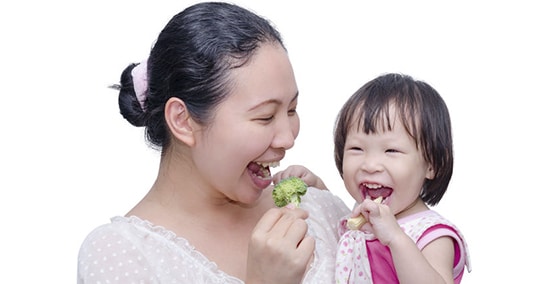
Healthy snacks and drinks for infants and toddlers
It is fairly common to see kiddos everywhere munching on high calorie, high carbohydrate, processed snacks such as crackers or fruit snacks. While these foods may help keep infants and toddlers happy and content, they provide little nutritional value to promote overall health and growth. Of course, there's nothing wrong with treating your kids to some fun snacks every once and awhile.
Below is a list of some of our favorite healthy snack options that taste great and will provide energy for your growing child:
Snacks for Infants:
- Fruits and vegetables – try lots of different ones and try them often
- Small bites of soft fruit
- Cooked, diced pieces of vegetables
- Older infants can dip veggies into hummus, cream cheese, or dips
- Avocado
- Yogurt (after 8-10 months)
- Cheese (after 8-10 months)
- Crackers (preferably whole grain)
- Fruit smoothies with yogurt or 100% juice
Toddler Snacks
Those same foods are just as good for toddlers. Additionally, other foods such as edamame, egg whites, and raw veggies dipped in sauces. All of these snacks are food sources of fiber, vitamins, minerals, and protein.
Nuts and popcorn should be avoided until 3 years of age, because of the risk of <<choking>>. However, your child can still eat peanut butter or other nut butter spreads (as long as they don't have an allergy), but avoid whole nuts.

Timing Snacks
Most older infants and toddlers need to eat every few hours to keep their energy up and bellies full. However, that doesn't mean you want to encourage continuous eating. Try to set a specific time for snacks between meals so they are hungry at both snack and mealtime.
Drinks
Water, breast milk, milk, and <<milk substitute>> are all great options. Go cautiously with fruit juice that can be add excess calories and sugar to a toddler's diet. The American Academy of Pediatrics recommends 4 ounces of 100% fruit juice daily for toddlers age 1-3. Children age 4-6 are allowed up to 6 ounces daily. When you give your child liquids, try to do so after meals so that they do not get too filled up and lose interest in eating solid foods.




